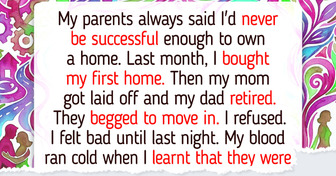You did the right thing, red flags were flying. If he didn’t propose in three years he wasn’t interested in marriage. My condolences your father had your best interest at heart. You deserve better than the mooch.
I Refused to Share My Inheritance With My Partner—I’m Not His ATM
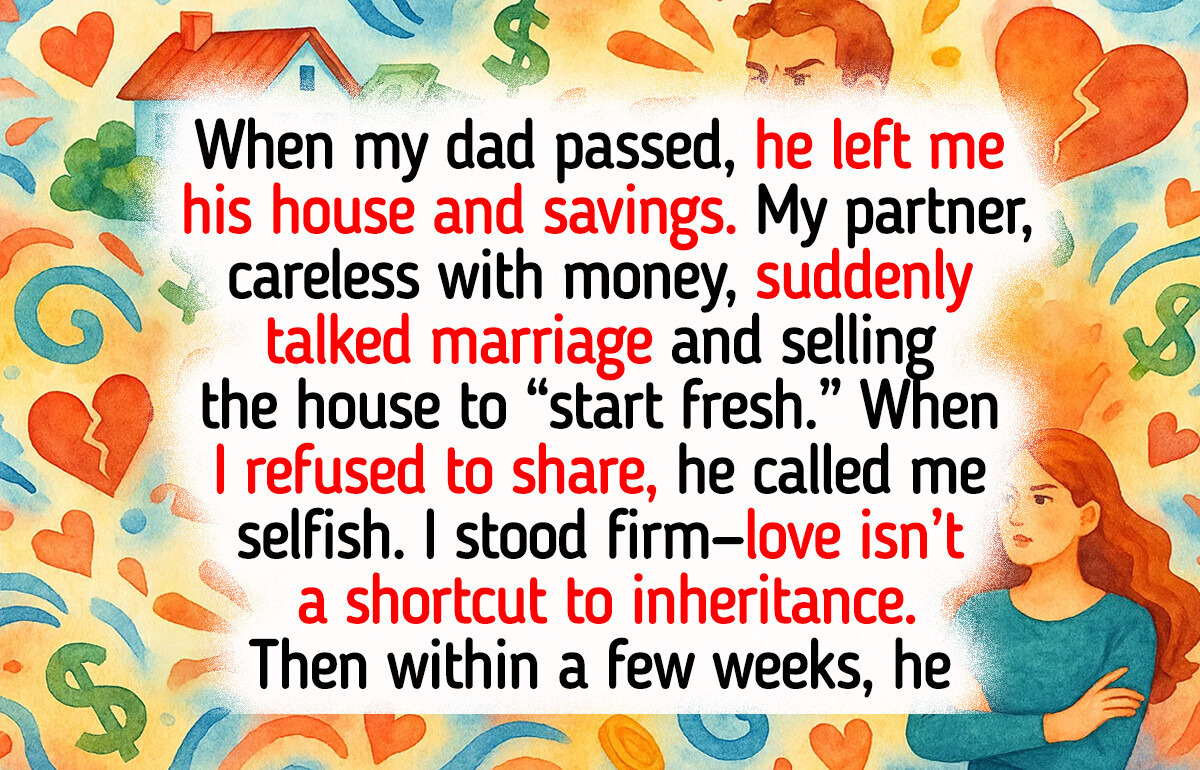
Money can reveal truths that love tries to hide. One of our readers opened up about a painful experience after losing her father. What should have been a moment of grief and remembrance quickly turned into a test of loyalty. When she refused to hand over the inheritance her dad left her, her relationship took a turn she never saw coming.
The story with her own words:
Dear Bright Side team,
When my dad passed away last year, he left me his house and some savings. It was bittersweet — I was grieving, but also thankful that he made sure I’d be okay. My partner (32M) of three years had always been a bit careless with money, but the second he found out about the inheritance, he completely changed his tune.
Out of nowhere, he started dropping hints about marriage — talking about “our future,” “our home,” and how “we” could finally live comfortably. He even suggested selling the house so we could split the profit and “start fresh together.”
The problem? The will was clear. Everything was left to me. We weren’t married, didn’t share finances, and I had already been the one covering most of the rent and bills. I told him I planned to keep the house, save the money, and finally get some stability.
He got angry. He said I was “selfish,” that a “real partner” would share, and accused me of not being serious about our relationship. He even implied my dad would’ve wanted me to use the inheritance to build “our life together.” That cut deep.
But I stood my ground: “It’s not yours, and marriage isn’t some shortcut to claim it.”
Within a few weeks, he packed his things and left. It hurt, but I realized — if the only reason he wanted to marry me was tied to money and property, then I wasn’t losing a partner. I was dodging a bullet.
Did I do wrong? Was I selfish?
Yours,
Elsa

Self preservation isn’t selfish, it’s self care. You paid attention to the red flags. Good for you for standing your ground.
Yay!!! You succeeded and managed to stay ahead. Never be a sugar momma unless you can afford it. Preferably as a young person not ready for marriage yet, don't invest into someone else's future if they aren't putting in any effort.
No you are not selfish at all. Good riddance!
Heck no you did not wrong, if anything. You should have helped him pack. So he could get out faster. You dodged a bullet.
I'm so proud of you for kicking that broke joker to the curb!!!
YOU GO WOMAN!would've said girl,but having that much inner strength...that's a WOMAN decision! You are better off!
You did just fine.
Smart move!
SO you single now?
Haahaahaa, good one!
No isn't any simpler way to put it
You did right, take care
You're smart is what you are. And even being married doesn't give him access to it if you don't put it in a shared account. Be thankful that he showed you who he is. Change the locks, passwords and lock down your credit. Recommend that he get another job or a roommate when he tells you he can't pay his rent. Block him and anyone who says you should have shared it. If grandpa wanted him to have anything he'd have left it to him.
No he’s not entitled to the inheritance but in some places, if he accepted it was her inheritance, they had married and then divorced, she could owe him part of the house’s increased value. I know of this woman who inherited a house, she got divorced and because the value had increased so much she had to pay her ex $200k+. Learn the laws before you let anyone move in.
Absolutely. Remember that you are the ONLY ONE LOOKING OUT FOR YOU, now and in the future. Also do NOT let anyone move in "until they get on their feet", because they never will and depending on what State you live in if they establish residency by getting their mail delivered to your house while they are "visiting", or are there more than 30 days it can take an EVICTION to get them out. Hang on to your smarts with both hands and don't let anyone try to guilt you or belittle you into something that will only benefit them.
Expert Insights & Psychological Tips
1. Relational Entitlement & Power Imbalance
People with a sense of relational entitlement often believe they deserve special privileges or financial benefits in intimate relationships — sometimes without reciprocity. When one partner expects the other to share an inheritance or assume rights over property just because of marriage or partnership, that can be a sign of inflated entitlement. Research shows that high entitlement contributes to conflict, resentment, and mismatched expectations in relationships.
Takeaway: Recognizing entitlement helps you see that your partner’s expectation (to share the inheritance) came less from love or fairness, and more from a belief they “deserve” more in the relationship.
2. Financial Gaslighting / Coercive Financial Control
Financial gaslighting is a form of emotional manipulation where someone tries to make you doubt your own perceptions or decisions about money. For example, pressuring you to share property that was legally and explicitly left to you, while framing it as “being a good partner,” or calling you “selfish” when you assert boundaries. This kind of behavior undermines your autonomy and can harm your self-esteem.
Takeaway: Setting clear boundaries around your inheritance was protecting not just your financial assets but your identity and self-worth.

3. Relationship‐Contingent Self-Esteem & Identity Threats
Relationship-contingent self-esteem (RCSE) is when someone’s self-worth depends heavily on how the relationship is going or how their partner sees them. If your partner reacts strongly to you keeping the inheritance or your name on the deed, it could be because their self-esteem is threatened. They may see your financial independence as a challenge to their role, especially if they’ve been used to power in the relationship.
Takeaway: When you stand up (keep what is legally yours), you force a moment of truth: does your partner respect you even when your choices do not align with their expectations?
- You had every legal and ethical right to the inheritance.
- Your partner’s sudden shift in expectations after the inheritance is a classic sign of entitlement and possibly coercive control.
- Your refusal was a boundary; boundaries are healthy in relationships — they signal respect for yourself and clarify what you will or will not accept.
At the end of the day, love should never come with a price tag — and the right partner will value you far more than your inheritance.
I Refuse to Help My Stay-at-Home Wife With Chores, I’m a Doctor, Not a Housekeeper
Comments
Related Reads
I Will Never Take Care of My Aging Parents Until They Follow My One Golden Rule
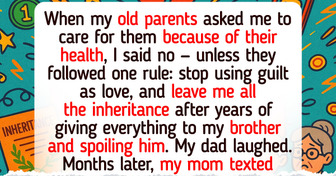
12 People Who Mastered the Art of Keeping Their True Motives Hidden
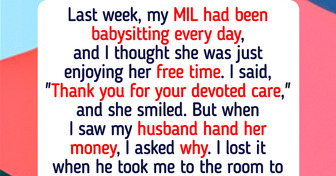
My Manager Tried to Destroy My Career but a Work Argument Showed Them the Truth

16 Stories That Show Kindness Is a Safe Refuge in the Middle of the World’s Chaos

11 Moments That Prove Kindness Still Exists, Even When Our World Feels Dark

12 Moments That Teach Us to Choose Kindness Even When Life Turns Cruel

15 Quiet Moments of Kindness That Made the Biggest Impact
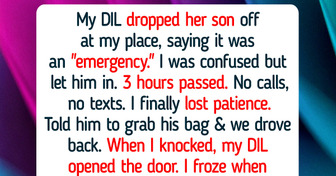
I Refused to Give Up My Baby, So My Mom Exposed a Terrible Secret
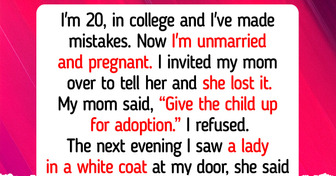
I Walked Out of the Family Reunion After My Stepdaughter Handed Me a List of “Rules”
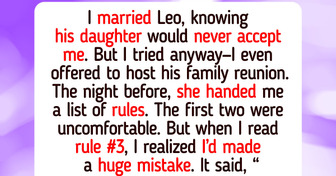
17 Breakup Stories That Prove the Best Revenge Is Living Well

I Refuse to Let My Sister Hijack My Pregnancy Announcement

My Parents Told Me I’d Never Own a Home, Now They Want to Move In
